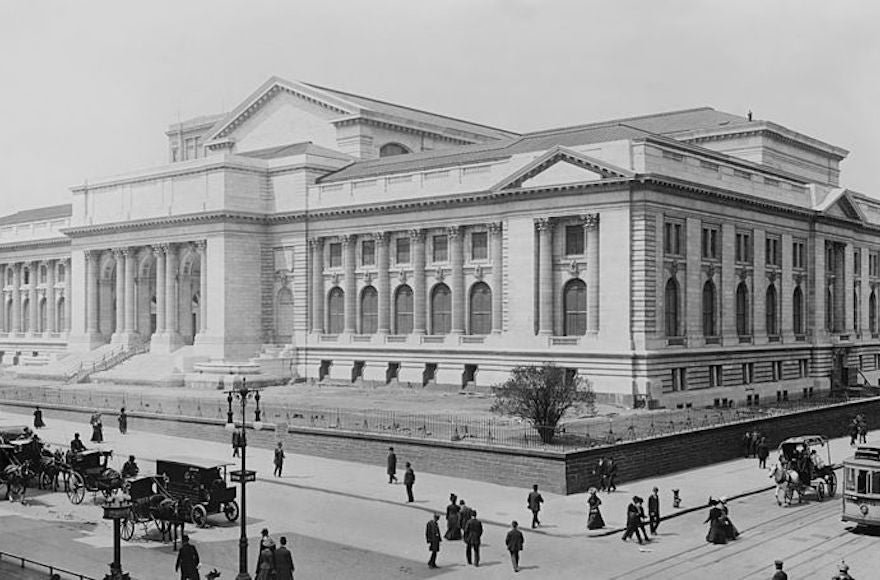Frequent calls for anti-Semitic literature are made at the New York Public Library and, according to the report for 1922 just issued, “anti-Semitism is finding a place beside the more usual and less controversial studies”.
References to the interest of non-Jewish readers in anti-Semitic literature are contained in the survey of the Jewish Division. After describing the valuable accessions to the collection of the Hebrew lore, the report states:
“Some years ago, in an unpublished report of this Division, a statement was made on the basis of constant observation of those Jewish subjects which engage the attention of the general reading public, that only Jewish readers devoted their time to the consideration of Jewish problems of the day, while the interest of non-Jewish readers was mostly limited to the ancient Jewish past in connection with biblical literature and theology. The conclusion reached was that there was no “Jewish problem” confronting gentile Americans, and that there seemed to be in fact nothing in American social thought corresponding to “Judenfrague”, “question juive”, and their Russian, Polish, Hungarian and Roumanian equivalents.
“Times, however, have since changed. Anti-Jewish literature is called for frequently, and anti-Semitism is finding a place beside the more usual and less controversial studies.
“The new agitation against the Jews seems to have originated several years ago with some British journalists. In this country the turning-point came after the conclusion of the war, and was marked by the appearance in English of the so-called ‘Protocols of the Learned Elders of Zion’. At that time also Henry Ford’s anti-Jewish campaign began in his DEARBORN INDEPENDENT. These articles were issued later under the title ‘The International Jew’, in four volumes. Next came G. K. Chesterton with his ‘New Jerusalem’, followed by Hilaire Belloc’s ‘The Jews’. Interest in the Jewish question has been intensified by discussion of the proposed restriction of the number of Jewish students at Harvard College, and by the recent exposure of the activities of the Ku Klux Klan.
“Like readers on most subjects, those interested in this topic generally confine themselves to the newer books in English literature or for books in foreign languages. As may be expected, Jews are sufficiently interested in this controversy to outnumber non-Jewish readers. As between the anti-Semitic writings and the Jewish apologetics, the former are decidedly more in demand, refutations seldom having the popular appeal that accusations have.
“With reference to the readers of books in Yiddish, there is an ever-increasing call for translations of the world’s best literature into that idiom.
“While it is clear that, as acquisitions to the Library, such translations are not of the same value as are original works, the persistent demand therefore, because of their superior literary merit, compels consideration.”
JTA has documented Jewish history in real-time for over a century. Keep our journalism strong by joining us in supporting independent, award-winning reporting.
The Archive of the Jewish Telegraphic Agency includes articles published from 1923 to 2008. Archive stories reflect the journalistic standards and practices of the time they were published.




